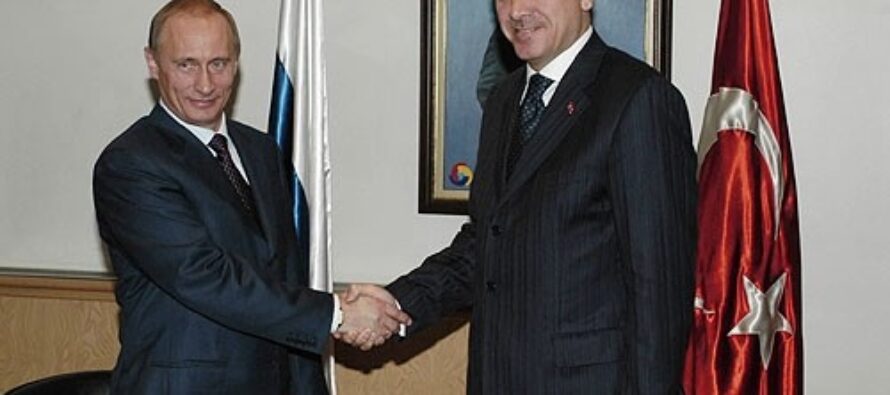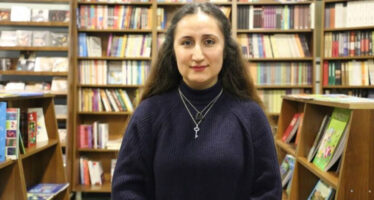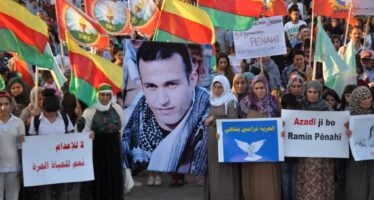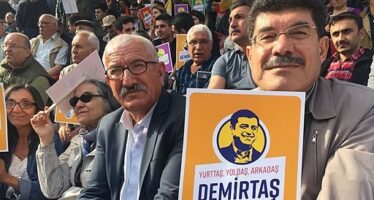Turkey looks ahead to a strongman era

![]()
In the latest test of his leadership, President Recep Tayyip Erdogan proved once more why he is Turkey’s most preeminent politician and its most dominant leader since Mustafa Kemal Attaturk. Simply, he is prepared to do whatever it takes.
The June 24 presidential election did not have to go to a second round, a possibility that remained on the cards until the day of the vote. Erdogan scored victory over the main opposition candidate Muharrem Ince with 52.6% of the vote.
That margin might seem modest in comparison to the 86% secured by President Ilham Aliyev in next door Azerbaijan earlier this year or the 75% won by Russian leader Vladimir Putin in March. But nobody in Turkey, whether for or against Erdogan, has any doubt the country is now firmly in strongman territory. The president’s persona towers over the institutions of the state.
This election victory that took place under conditions of emergency rule with one opposition candidate running from jail strengthened the hold of a man who first came to power as Turkey’s Prime Minister in 2003 over all branches of government.
That is because a violation-marred referendum changing the country’s constitution in a way that favoured expanded presidential powers last year. The referendum passed with just 51.4% of the vote. Once again, Erdogan, whose political career is crudely but comically illustrated in this video, had done just enough.
Divide and rule
Not that the president is completely satisfied with the scale of his victory. Shortly after the results were announced he labeled Turkish citizens in America who overwhelmingly voted against him “Gulenists” — a reference to his foe-in-exile Fethullah Gulen.
Erdogan:
“The Gulenists fled to America; when we look at the votes from America, they are for the opposition.” https://t.co/1OH9iPOtyU
— Nate Schenkkan (@nateschenkkan) June 24, 2018
June 24 also determined the makeup of a new parliament. Here Erdogan’s supporters in the Justice and Development Party (AKP) have 295 seats, and thus fall just short of an overall majority. Nevertheless they can be sure of support from their allies in the nationalist MHP who performed strongly, winning 49 seats. Together the two parties that formed an alliance in the wake of the failed military coup two years ago control the parliament, with MHP undoubtedly the junior partner. One MHP lawmaker who suggested that the party “saved” Erdogan and AKP and should leverage its position was quickly sacked.
In an indication of Turkey’s presently toxic political atmosphere, MHP released a list of all those who had “doubted” them during their election campaign.
“Living up to its dignified reputation, #MHP publishes a list of names of all those who doubted the party during the campaign. Incitement, pure and simple.”
— Mark Lowen (@marklowen) June 26, 2018 June 26, 2018
What is left and what comes next?
According to the OSCE/ODIHR mission report the elections took place in an environment that clearly favored the ruling party and the president. Simultaneously, if there was one party clearly disfavoured by that same environment it was the pro-Kurdish left-leaning HDP, which was able once more to cross the 10% threshold and enter parliament despite party co-leader Selahattin Demirtaş running his campaign from a prison cell where he has been awaiting trial since May 2016.
Some say the very fact that a party like HDP can still compete in national elections and secure seats is testimony to the fact that there is still some way to go before Turkey becomes a fully-fledged authoritarian state. Nevertheless, the signs for the future are not good.
The failed military coup in 2016 that gave birth to the state of emergency AKP and MHP say they will end this month has already seen 107,000 Turks lose their jobs. Some 50,000 people who have been imprisoned pending trial, many on charges of conspiring with the shadowy Gulen organisation accused of plotting the coup. Dozens of journalists are currently behind bars in a country that along with Egypt and China has been accused by media monitors of leading the charge leading the charge against the free press.
Criticized for a rights-lite approach even before all of this, Erdogan and AKP could at least take some credit for a strong economy during their first decade in power. That has not been the case in recent years. Weeks before the election, the Turkish Lira took a dive, weakening against the dollar and euro. President Erdogan has promised to continue further interventions at the Central Bank. Most onlookers are skeptical about prospects for an economic recovery.
“Now the first challenge is the deteriorating economy and he (Erdoğan) has no means to challenge the course of events”: My comment in NYT #TurkeyElection2018
Now, Erdogan Faces Turkey’s Troubled Economy. And He’s Part of the Trouble. https://t.co/2Gb7mPxhDA”
— Kadri Gürsel (@KadriGursel) June 26, 2018
Erdogan has what he needed for the moment. He will now be in power at least until 2023, a year that marks the centennial of the Turkish Republic created under Attaturk. Yet for all the support he enjoys, Turkey is more divided than ever.
As Elif Safak, Turkey’s renowned writer recently put it in an interview with the Washington Post:
“For a democracy to exist and survive, you need more than the ballot box. You need rule of law, separation of powers, free and diverse media, independent academia, women’s rights, minority rights and freedom of speech. In Turkey, all of these components are damaged or broken after 16 years of the increasingly authoritarian rule of Erdogan’s Justice and Development Party (AKP). How then can we call this a democracy? It is not. Once majoritarianism had been consolidated, it was a very swift fall from there into authoritarianism.”
Written by Arzu Geybullayeva
Source:
Global Voices is an international and multilingual community of bloggers, journalists, translators, academics, and human rights activists.
“Together, we leverage the power of the internet to build understanding across borders.”
Image:
Russian president Vladimir Putin and Turkish Prime Minister Recep Tayyip Erdoğan.
By Kremlin.ru [CC BY 3.0 (https://creativecommons.org/licenses/by/3.0) or CC BY 4.0 (https://creativecommons.org/licenses/by/4.0)], via Wikimedia Commons
Related Articles
Kurdish writer Roza Metina detained in Amed
![]()
Jinnews Kurdish service editor and writer Roza Metina was taken into custody on Friday morning during a raid on her home
Execution of Kurdish Death-Row Prisoner More Likely, Prison Officer Says
![]()
Fears for Ramin Hossein Panahi Grow Despite Torture and Due Process Violation Concerns
Turkish Presidential Candidate Demirtaş: “I am running for president in Turkey, from my prison cell”
![]()
“The only hope for a liberal, democratic future lies in our coming together to defeat the authoritarian regime.” Selahattin Demirtaş





